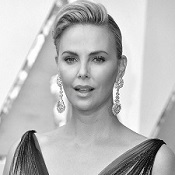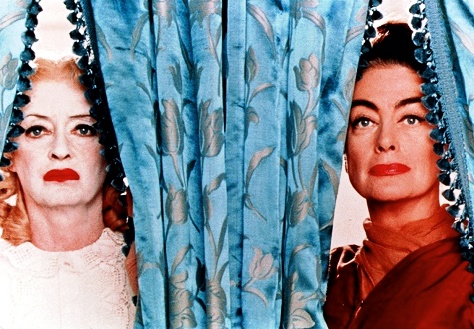Dorothy Dandridge, like Josephine Baker, was sex. Sexy. Black. Separately those two things are all good but put 'em all together and white America wasn't ready for her. At age eight, Dorothy performed with her sister in a song-and-dance team called "The Wonder Children.” Getting that itch to perform, to be somebody, she left high school in 1930s to form the Dandridge Sisters trio with her sister Vivian, and Etta James. At the Cotton Club in Harlem, Dandridge—who had a mixed racial heritage—was confronted for the first time by the segregation and racism of the entertainment industry.
As a teenager, Dorothy began to appear in small roles in a number of films, including the Marx Brother’ A Day at the Races and Drums of the Congo. In 1945, she married Harold Nicholas, of the Nicholas Brothers dance team; she had performed with them in the 1941 Sonja Henie musical Sun Valley Serenade.During their turbulent six-year marriage, Dandridge virtually retired from performing. A daughter, Harolyn, was born with severe brain damage in 1943 and, as Dorothy was unable to care for the child alone, she placed her daughter in foster care. It was a decision she would regret her whole life. After Nicholas and Dandridge divorced in 1951, Dorothy returned to the nightclub circuit, this time as a successful solo singer. After a stint at the Mocambo club in Hollywood with Desi Arnaz’s band and a sell-out 14-week engagement at La Vie en Rose, she became an international star, performing at glamorous venues in London, Rio de Janeiro, San Francisco, and New York. And though Dorothy Dandridge was the star of the show, the headliner, the reason why white audiences filled nightclub after nightclub, she wasn't allowed to enter those clubs or hotels through the front door. She wasn't allowed use of the pools in those hotels—one story has it that Dandridge, furious at being segregated in a hotel making money off her talent, dipped her toe in the hotel pool, only to find out that the pool was later drained, cleaned and refilled with water; singing star Dorothy Dandridge rode freight elevators to her hotel room; she waited in the kitchen to go on. She wasn’t allowed to even have a drink at the very clubs in which she headlined. Then Hollywood called again, offering Dandridge her first starring role in 1953’s Bright Road, playing an earnest and dedicated young schoolteacher opposite Harry Belafonte. But it was her next film that would make her a sensation. As the lead in Carmen Jones, a 1954 film adaptation of Bizet's opera Carmen, Dorothy once again costarred with costarred Belafonte. With her sultry looks and flirtatious style, Dorothy Dandridge became the first African-American to earn an Academy Award nomination for Best Actress. Though many believed she deserved to win, Dandridge eventually lost the award to Grace Kelly, who won for The Country Girl. After the phenomenal success of Carmen Jones, Dandridge appeared well on her way to becoming the first non-white actress to achieve the kind of superstardom that had accrued to contemporaries like Marilyn Monroe and Ava Gardner. She was a sex symbol, a Black American sex symbol to all audiences. But racism was quite a power broker in Hollywood in those days, and in the years that followed Carmen Jones, Dandridge had trouble finding film roles to suit her talents. Black women were nannies and maids, supporting roles; they were not sexy, beautiful women. Dorothy's only other great film was 1959’s Porgy and Bess, in which she played Bess opposite Sidney Poitier. Refusing to play a slave, she turned down the supporting role of Tuptim in The King and I—a role that might have helped her achieve the level of stardom she desired. There were rumors that she might play Billie Holliday in a film version of Lady Sings the Blues directed by Orson Welles, but it never panned out. In the racially disharmonious 1950s, Hollywood filmmakers couldn't, or wouldn’t, create suitable roles for the light-skinned Dandridge. Soon, the only roles offered Dorothy were the subtly prejudiced visions of interracial romance. She appeared in several poorly received racially and sexually charged dramas, including Island in the Sun, again with Harry Belafonte, and Tamango, in which she played the mistress of the captain of a slave ship. While making Carmen Jones, Dandridge became involved in a heated, secretive affair with the film's white director, Otto Preminger, who also directed Porgy and Bess. Dorothy hated the idea of keeping her romance with Preminger a secret; she knew no shame in whom she loved. But their interracial romance, as well as Dandridge's relationships with other white lovers, was frowned upon, not only by the white Hollywood establishment, but other African-American members of the filmmaking community. In 1959, Dorothy married her second husband, Jack Denison. She lost the majority of her savings when his restaurant failed in 1962. Married to a penniless movie star wasn't Denison's idea of the good life, and he left her soon after. As her film career and marriage failed, Dandridge began drinking heavily and taking antidepressants. The threat of bankruptcy and nagging problems with the IRS forced her to resume her nightclub career, but she found only a fraction of her former success. Relegated to second-rate lounges and stage productions, Dandridge's financial situation grew worse and worse. By 1963, she could no longer afford to pay for her daughter's 24-hour medical care, and Harolyn was placed in a state institution. Dandridge soon suffered a nervous breakdown. On September 8, 1965, Dorothy Dandridge was found dead in her Hollywood home. it was called an apparent suicide from a drug overdose of prescription medication, but many believed Dandridge accidentally killed herself. Dorothy Dandridge paved the way for sexy, beautiful Black women like Diana Ross, Whitney Houston, Diahann Carroll, Halle Berry, Beyonce and more. |





























